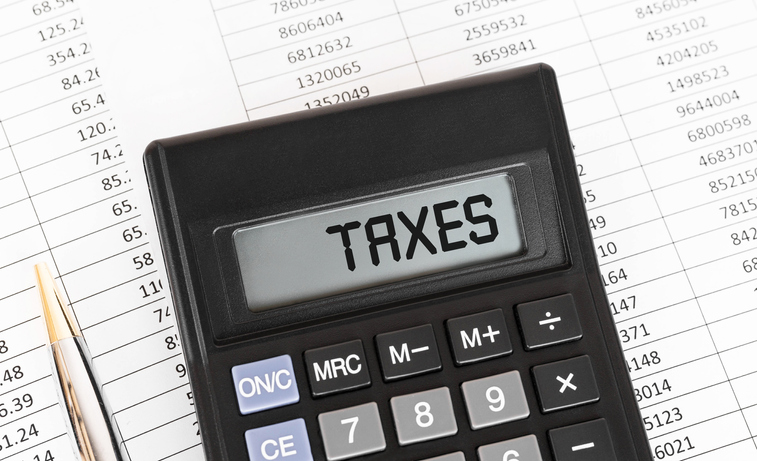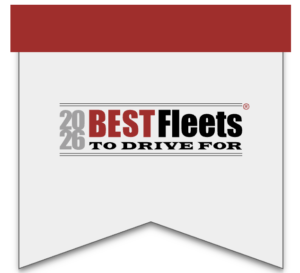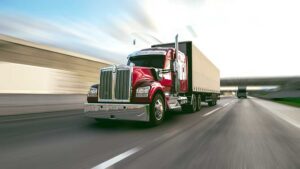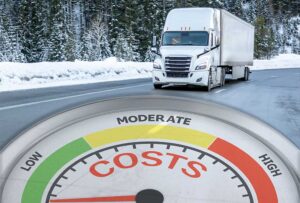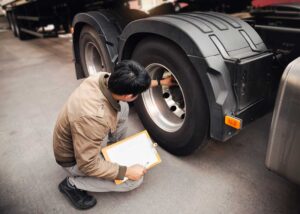Most folks know that the amount of income tax you owe for a given year depends on how much you earned.
What a lot of folks don’t know is that there’s another tax that’s dependent on your income — the Self-Employed-Contributions Act (SECA) — and for most owner-operators, there is only one bracket. As an owner-operator, you’re most likely to be in the 15.3% bracket. Unfortunately, this tax catches many trucking business owners by surprise when they file.
“One key piece of advice for new truck business owners is to stay proactive about their taxes,” said Vanessa Gant, founder of proVision Accounting Solutions. “This means not only keeping meticulous records of expenses, mileage and income but also understanding how different business decisions can impact their tax situation.”
Gant has worked with hundreds of small trucking businesses, helping them preserve the information necessary to comply with the maze of tax requirements while keeping tax liability as low as possible.
To understand SECA, it’s necessary to go back to 1935, when Congress passed the Federal Insurance Contributions Act (FICA) to collect funds to support the Social Security and Medicare programs. Under the terms of the act, employers paid half the tax amount and employees the other half.
Those who worked for themselves were overlooked.
In 1954, Congress passed SECA. Under that law, if you’re self-employed you’ll pay both the employee and employer shares of the taxes. For Social Security, that’s a total of 12.4% of your net income. For Medicare, it’s another 2.9%.
It’s important to understand that if you’re an employee and you decide to buy a truck and go into business, your Social Security and Medicare taxes are going to double.
Keep in mind that the deductions you take for your Federal Income Tax do not apply to the Self-Employment tax. You (or your accountant) will complete an IRS 1040 Schedule C to determine how much profit your business made; then Schedule SE is used to calculate the tax you owe. That amount is added to your form 1040 and calculated into your payment or refund.
When it comes to deductions, it’s common to hear someone say about an expense, “I just write it off on my taxes.” Unfortunately, too many business owners assume that “writing it off” means it’s FREE. That’s not how it works. If the expenditure is for your business, you’ll save the 15.3% self-employment tax and the amount of income tax you would have paid on that amount. The remainder is an expense you won’t get back.
In other words, calculating tax savings into your purchase decisions can make the price of whatever you’re buying much more attractive — but it’s still an expense.
Now, let’s talk about profit.
Profit, in its simplest form, is whatever’s left over after your business expenses. Successful business owners know that profit must be managed. Everyone wants to make more money, but no one wants to pay the higher taxes associated with higher profits. The timing of purchases can make all the difference when you sit down to do taxes.
For example, 2023 was a difficult year for most trucking businesses. Freight rates were (and still are) hovering near the bottom of the scale, while the cost of equipment, parts, tolls, interest on loans and more has risen. It’s quite possible your business may show only a small profit — or even a loss — for the year. On the other hand, most analysts are predicting freight rates will start rising by the second half of 2024 and continue rising into 2025.
It’s early yet, but if your business lost money in 2023, conditions likely won’t be a lot better in 2024.
Returning to the topic of tax write-offs: If you strongly suspect you’re not going to make a profit for this year, or only make a small one, ask yourself this: Does it make sense to make a large purchase this year, or should I hold it over for 2025?
On the other hand, if you’re confident 2024 will be a good year for you, spending cash on your business before the year is out can help reduce your tax liability.
Be sure to consider depreciation, too. For example, the value of your truck declines each year after it was made until it reaches a minimum. If you were to sell the truck for its current value, you’d lose money. Since your business has lost value because your truck is worth less, the IRS allows you to claim that lost value as depreciation. The IRS has depreciation tables to help you calculate how much to deduct and how many years you’ll be allowed to take the deduction.
When you’re self-employed, the IRS expects you to make estimated quarterly payments on the tax you might owe at the end of the year. You won’t need to file a return with each payment. Since the payments are estimates, you’ll resolve all the numbers when you file your annual return. Remember, the IRS can impose penalties if you don’t make quarterly payments or if you underestimate the amounts.
Finally, a good accountant or tax advisor is invaluable to your business. Even if you’re good at calculating the numbers, accounting is only a sideline to your main business of hauling freight. For your accountant, it’s a full-time job they’ve been specially trained for. A professional will help you identify all the deductions you’re entitled to and help determine the best way to claim them. If there’s an issue with the IRS, your adviser knows your history and can help you resolve it.
You can help your accountant by keeping good records and communicating promptly.
“It’s vital for new owners to familiarize themselves with the specific tax benefits and obligations for the trucking industry, such as deductions for overnight travel expenses and the heavy vehicle use tax, Gant said. “Understanding these nuances can significantly affect the bottom line.”
Of course, another benefit of using accounting professionals is that their services are tax deductible.
Cliff Abbott is an experienced commercial vehicle driver and owner-operator who still holds a CDL in his home state of Alabama. In nearly 40 years in trucking, he’s been an instructor and trainer and has managed safety and recruiting operations for several carriers. Having never lost his love of the road, Cliff has written a book and hundreds of songs and has been writing for The Trucker for more than a decade.




